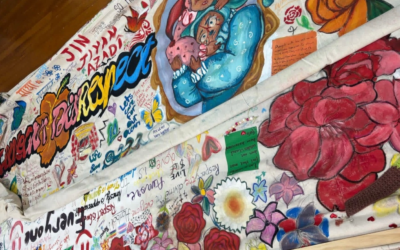Interest rate hikes have long been a central monetary policy tool wielded by central banks to regulate economic activity and maintain stability. While these adjustments may seem impartial, a closer examination reveals that interest rate hikes can have a discriminatory impact and disproportionately affect low-income individuals and marginalised communities.

Interest Rate Hikes and The Double-Edged Sword.
Influenced by various economic factors, interest rates are pivotal in how much it costs to borrow money, and how much you earn from savings. While intended to curb inflation and stimulate responsible borrowing, the impact of interest rate hikes is not evenly distributed across society.
Low-income households, more likely to rely on credit for everyday expenses, often bear the brunt of these rate adjustments. As interest rates rise, the cost of servicing debts – from credit cards to mortgages, becomes a heavy financial burden. This can potentially lead to a cycle of financial stress and mounting debt.
One of the most evident manifestations of the discriminatory nature of interest rate hikes lies in the housing market. Low-income families often struggle to secure stable housing, and when interest rates go up, the homeownership can make this more challenging.
As mortgage rates increase, the affordability of homeownership becomes a barrier, widening the gap between those with access to homeownership and those forced into perpetual renting.
The result perpetuates housing inequality, with the poor being systematically excluded from the benefits of property ownership and wealth accumulation. On top of that, Australia suffers from a nationwide housing crisis, so some low-socioeconomic-status households risk losing their properties.
The Reserve Bank Board raised the cash rate ten times this year, which begs the question: was it necessary? And if so, was it ethical? Leader of the Greens party, Adam Bandt, says: “In the middle of a housing and rental crisis, there is a real risk the Reserve Bank is going to ruin lives and undermine our collective future with further rate rises.”
Access to Credit: A Catch-22
Interest rate hikes can also perpetuate the cycle of unequal access to credit. Financial institutions seeking to mitigate their risks in times of increased interest rates, become more stringent in their lending practices.
This exacerbates the difficulty vulnerable communities face in accessing credit, as lenders hesitate to extend loans to those with already limited financial resources. As such, people experiencing poverty are caught in a catch-22, where the mechanisms meant to encourage financial responsibility only reinforce economic barriers.
Policy Considerations and Different Approaches
Addressing the discriminatory nature of interest rate hikes requires a comprehensive approach that considers the unique challenges faced by vulnerable communities. Central banks and policymakers need to factor in the potential uneven impact on low-income households when formulating monetary policy.
Providing targeted support, such as financial literacy programs, affordable housing initiatives, and credit access programs, may help mitigate the adverse effects of interest rate hikes and empower vulnerable communities to navigate economic challenges.
Greens treasurer, Nick McKim, says: “Instead of getting rid of his existing power to set interest rates, the Treasurer should be using this power right now to help renters and mortgage holders by freezing interest rates.”
While central banks employ these measures to achieve macroeconomic stability, their implications for people experiencing poverty cannot be overlooked. Understanding how interest rate hikes disproportionately impact low-income individuals and marginalised communities is essential for developing inclusive monetary policies that promote financial well-being and equal opportunities for all.
As we navigate the intricate landscape of monetary policy, it is essential to recognise the broader societal impact of interest rate adjustments and work towards financial system that’s fairer for everyone.



